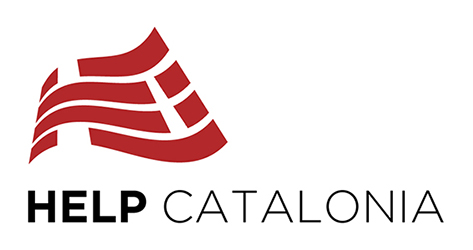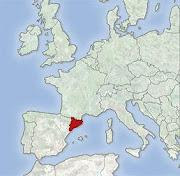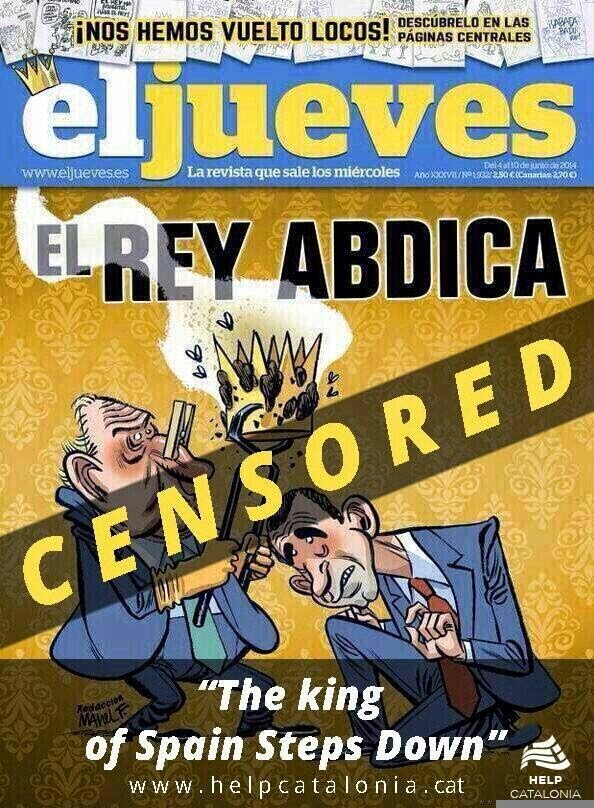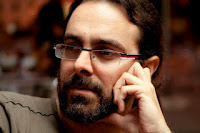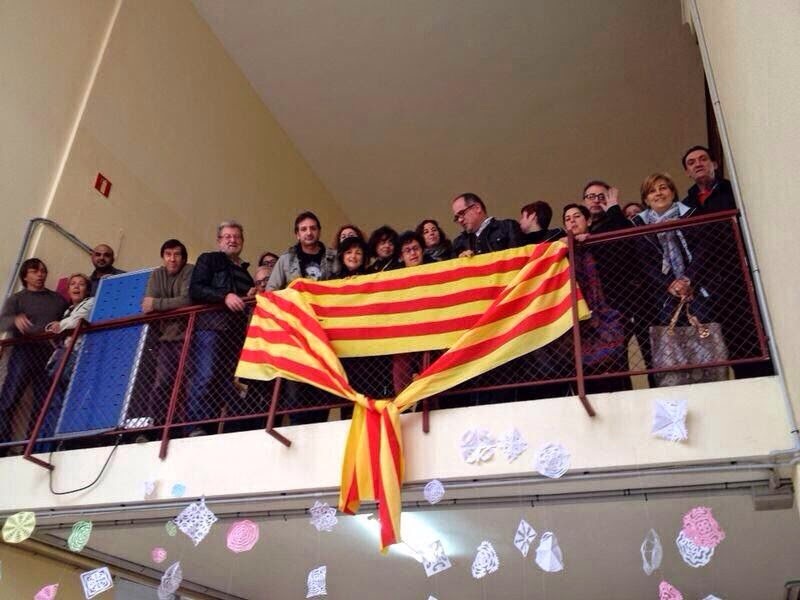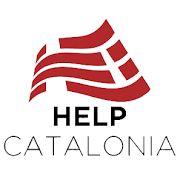Barcelona (ACN). - In 2012, 26.5% of the Catalan population could have a conversation with someone in English, according to the most recent survey on foreign languages issued by the Catalan Institute of Statistics (IDESCAT). The survey also revealed that the youngest population was the most skilled, with 50.8% of teenagers aged 15-19 having a good knowledge of English. According to EU studies on bilingualism and foreign language acquisition, Catalonia should offer a more positive context for English learning, due to having two main official languages, Catalan and Castilian (referred to as Spanish abroad). But quite ironically, despite the improvement on previous figures, dating back to 2008, the Catalans’ skills in English remain slightly lower than the Spanish average. Furthermore, according to the latest English Proficiency report on European countries and cities, Barcelona has gained much ground on Madrid but is still outdistanced by the Scandinavian leaders. Nevertheless, the latest data points towards a positive change in trend, sparked by a school system that fosters bilingualism. Catalan and Castilian have traditionally coexisted in a peaceful manner in Catalonia, with the majority of the population understanding both languages. However, it is interesting to note that Catalan has become and still is the minority language, following successive waves of immigration from other regions in Spain and Franco’s political and cultural repression. As a consequence, many households are Spanish monolingual families and while all residents can understand Castilian, the same cannot be said of Catalan. Besides, in spite of the growing number of Catalan speakers, Castilian remains predominant in specific contexts such as the workplace, particularly in large-sized companies.
A higher percentage of Catalans know English, highest figures for the youngest population
The latest survey on the population’s English skills, issued by the Catalan Institute of Statistics (IDESCAT) in 2012, has shown that the number of Catalans with a good knowledge of English has increased since 2008. In 2012, 1.7 million people aged 14 and over (26.5% of Catalonia's 7.5 million population) could have a conversation with someone in English, while 23.2% could write in the language. According to data from 2008, only 1.4 million people met the minimum requirements for all four language skills (reading, writing, speaking, and understanding).
Furthermore, according to the 2012 survey, there are significant discrepancies in language skills according to age. Indeed, the younger the population, the more skilled in English they are: in 2012, 50.8% of teenagers aged 15-19 years old had a good level of English, 28 points above the average for the total population of Catalonia. Such a figure dropped mildly to 44.2% for people aged 20-24 years old and further decreased to 35.5% for people aged 25-29 years old. The lowest percentage was registered by the elderly population, aged 65 and over, out of which only 3.9% knew the language. Such figures suggest that the English level of Catalans has gradually been improving. Interestingly, the growing abilities in the language mirror the growing number of Catalan speakers in Catalonia.
Bilingualism tends to benefit the acquisition of a 3rd language
One of the conclusions drawn by the European Union survey on language competences is that “the earlier the onset of language learning, the higher the attained language proficiency”. They have also stressed that bilingualism, that is to say, dealing with two different languages from a very young age, generally favours third language acquisition. In 2004, a survey conducted by the Catalan Government to assess the English level of pupils ('La situació de la llengua anglesa al batxillerat a Catalunya 2000-2004'), also came to the conclusion that “the fact the pupil spoke Catalan regularly, implying a higher level of bilingualism, facilitated the acquisition of a 3rd language, in this case, English”. However, the fact bilingual households are a minority in Catalonia can account for rather low English-proficiency figures: according to the survey, only 14.9% of the pupils assessed were from bilingual households, while 91.7% claimed to speak Castilian and 67.5% Catalan. Furthermore, in more general terms, only a minority of the residents of Catalonia claim to be equally at ease with Catalan and Castilian.
Nevertheless, according to a survey on the languages spoken in Catalonia, issued by the Catalan Government in 2012, Catalan, while remaining the minority language, has increasingly been used in households between 2007 and 2012. The use of other languages has also increased but to a lesser extent and Spanish has notably remained stable. Generally, Catalan homes have become more and more bilingual. In 2012, 36.9% of the population (almost 2.4 million people) used Catalan as their initial language, that is to say the first language spoken in the family, while the number of people who used Castilian as their first language stabilised at 54% (almost 3.5 million).
According to the survey, in 2012, 100% of the adult population understood Spanish, 99.8% could speak it, while 99.3% had good written skills in the language. Catalan has drawn nearer to such figures: 97.1% of the adult population could understand it, 84.3% could speak it while 70.1% could write in the language. The number of residents using Catalan as their language continued to increase between 2007 and 2012, with 500,000 additional Catalan speakers. Therefore, the total number of Catalan speakers in Catatonia reached around 6.4 million people two years ago.
Castilian had gained much ground during Franco’s Dictatorship
While the number of Catalan speakers in Catalonia is currently on a rising trend, in the second half of the 20th century, the situation was quite the opposite. Indeed, in such times, the linguistic landscape in Catalonia evolved considerably in favour of the Castilian language. The percentage of Catalan speakers decreased from 75% in 1940, after the Spanish Civil War, to 60% in 1975, the year Franco died. This was due both to Franco’s cultural and linguistic repression and to successive waves of migrants who came from other regions in Spain, looking for new job opportunities in Catalonia, and who only spoke Castilian. Instead of blending in the local community and learning the Catalan language, Franco authorities encouraged these migrants to continue speaking in Spanish. In addition, the arrivals of people from other parts of Spain were so substantial that entire neighbourhoods were built,to welcome them, As a result, the overwhelming majority of these new inhabitants lived close together, used Spanish as their only language and were not exposed to Catalan.
Therefore it was the Catalan natives who became used to addressing the newcomers in Castilian, which became the dominant language on the streets, since Catalonia almost doubled its population in such years. In addition, the political and cultural repression against Catalan during Franco’s Regime but also during the Primo de Rivera Dictatorship (1923-1930) and many other decades in the early 20th 19th and 18th centuries, gradually led to the tradition to use Spanish in the most formal of contexts, particularly when addressing administrative authorities. Furthermore, these factors, combined with the commercial exchanges with the rest of Spain, have progressively made Spanish the predominant language in the workplace, particularly in large-sized companies and factories, which hired a considerable number of Spanish migrants. For these historical reasons, nowadays, Spanish is still the most frequently used language in many large-sized corporations. However, according to 2012 figures, Catalan has gained much ground on Castilian in such respect, with the two languages used by respectively 70.4% and 78.6% of workers in Catalonia.
Strengthening Catalan presence and fostering true bilingualism through schools
After the end of Franco’s Regime first emerged the idea that the Catalan language had to be promoted within Catalonia. In the 1980s, the Catalan Government launched a linguistic normalization policy, founding the Service of Linguistic Policy (Direcció general de política lingüística) and implementing the Catalan Normalization Law. Such measures were aimed at ensuring the survival of the Catalan language by spreading its knowledge and use. One of the main objectives was strengthening Catalan presence in the public sphere. Media in Catalan were thereby founded while the education also became a priority sector: Catalan was officially declared the language of instruction in all Catalan schools. Prior to the 1980s, Castilian had been the only official language of instruction and Catalan was not even taught as a subject.
For the past 35 years, in Catalonia, classes have been taught in Catalan while Spanish was used both for language and literature lessons. However, the system includes several flexibility measures and a few schools have chosen to offer additional subjects in Spanish, taking into account specific socio-cultural environments and their own education project. The overall system is based on the linguistic immersion principle, ensuring that both the children coming from Spanish-speaking families - who tend to be barely exposed to Catalan - and the pupils coming from Catalan-speaking families master the two languages by the end of their studies. This guarantees equal opportunities and avoids creating two separate language communities. Such a system has been praised by the UNESCO and the European Commission for its efficiency in fostering true bilingualism: in recent years, Catalan pupils have obtained similar or superior results in Spanish than their counterparts in other Autonomous Communities in Spain. However, in the current political situation, the Spanish Government is aiming to change the system to make Spanish a language of instruction as well. Besides, in the last decades, the presence of English in Catalan schools has significantly increased in order to put an end to the traditionally poor knowledge in the language among a majority of the population.
Spaniards' English-skills slightly superior, showing similar trends
At Spanish level, 42% of the population claimed to have basic skills in English, according to figures released by the European Institute of Statistics (EUROSTAT) on the European Day of Languages in September 2013. Only 19% of the population had a superior level. While the Spanish figures are superior to the Catalan ones, they reveal similar trends. Firstly, they both registered a growth in figures. In 2007, only 30% of the Spaniards had good languages skills while 5% claimed to have a superior level and in 2011, the percentage had already risen to 35.5%, according to a survey by the Spanish National Institute of Statistics (INE). Furthermore, the youngest population is also the most skilled in the language: 49.8% of the people aged between 18 and 24 years old claim to have a good level in English while the percentage drops to 17.7% for people aged between 55 and 65.
The Basque country leading Spain, both Madrid and Barcelona are behind European capitals
In last year’s EF English Proficiency Index (EF EPI), listing the 60 most proficient countries in English, and which was issued in November 2013, Spain has made some progress since the two previous editions (2007 and 2009). With 55.89 points, it reached the fourteenth spot at European level, 9 places ahead of Italy and 12 spots above France. However, the country is still well behind Northern leaders Sweden (68.91), Denmark (67.96), the Netherlands (66.32), Finland (64.37) and Norway (63.22). Nevertheless, according to the report, conducted on 750,000 students worldwide in 2012, these improving figures are both due to the increasing number of bilingual English-Spanish schools and to the economic crisis, making the language perceived “a necessary skill in a globalized world”.
According to the survey, the leading area in the whole of Spain is the Basque country (57.90), which is two points above the national average and above Catalonia’s 54.60 points. With these figures, the Autonomous Community has gained ground on Central Europe countries such as Poland or the Czech Republic. Madrid on the other hand (56.39) obtains the worse results at European level compared to other capitals such as Paris, Rome, Berlin, or Moscow, but it is still the leading city in Spain. It is then followed by Barcelona (55.00), Valencia (54.28) and Seville (53.85).
English teaching policies in Catalonia
The Catalan Government has passed several measures to improve English proficiency in order to consolidate the upward trend that was revealed by recent surveys. English is increasingly being taught from an early age, starting with special activities in kindergartens and primary schools. Other initiatives were also taken in such respect: Catalan Public Television Broadcaster TV3 has for instance started broadcasting the ‘Worldgirl’ children’s program in English in January.
Meanwhile, some high-schools and universities also offer subjects in English to further develop their students’ abilities in the language. Besides, a law was also passed to ensure higher English skills for all graduates, implying that in order to graduate from the year 2018-2019 onwards, each private or public university student in Catalonia will have to pass a test in English – or another foreign language – equivalent to the B2 level (upper intermediate) in the Common European Framework of Reference (CEFR) for Languages. Similar measures have also been voted in other areas in Spain but most of the other universities have decided to set the test at lower intermediate (B1) level.
 After years of non-compliance, the Spanish Minister of Culture promised that the Spanish State would return to Catalonia, by 30th June 2012, all the documents that were looted by Spain during the war and stored at the Spanish Civil War Archive in Salamanca. Months after this deadline, the documents that belong to individuals and to private organizations and were meant to be sent to the Catalan government never made it back. It seems history will repeat itself as with the previous shipment promised by the Spanish Minister of Culture under Spanish president Zapatero, when everything was ready for the return of the documents and the Spanish administration stopped the shipment.
After years of non-compliance, the Spanish Minister of Culture promised that the Spanish State would return to Catalonia, by 30th June 2012, all the documents that were looted by Spain during the war and stored at the Spanish Civil War Archive in Salamanca. Months after this deadline, the documents that belong to individuals and to private organizations and were meant to be sent to the Catalan government never made it back. It seems history will repeat itself as with the previous shipment promised by the Spanish Minister of Culture under Spanish president Zapatero, when everything was ready for the return of the documents and the Spanish administration stopped the shipment. After years of non-compliance, the Spanish Minister of Culture promised that the Spanish State would return to Catalonia, by 30th June 2012, all the documents that were looted by Spain during the war and stored at the Spanish Civil War Archive in Salamanca. Months after this deadline, the documents that belong to individuals and to private organizations and were meant to be sent to the Catalan government never made it back. It seems history will repeat itself as with the previous shipment promised by the Spanish Minister of Culture under Spanish president Zapatero, when everything was ready for the return of the documents and the Spanish administration stopped the shipment.
After years of non-compliance, the Spanish Minister of Culture promised that the Spanish State would return to Catalonia, by 30th June 2012, all the documents that were looted by Spain during the war and stored at the Spanish Civil War Archive in Salamanca. Months after this deadline, the documents that belong to individuals and to private organizations and were meant to be sent to the Catalan government never made it back. It seems history will repeat itself as with the previous shipment promised by the Spanish Minister of Culture under Spanish president Zapatero, when everything was ready for the return of the documents and the Spanish administration stopped the shipment.